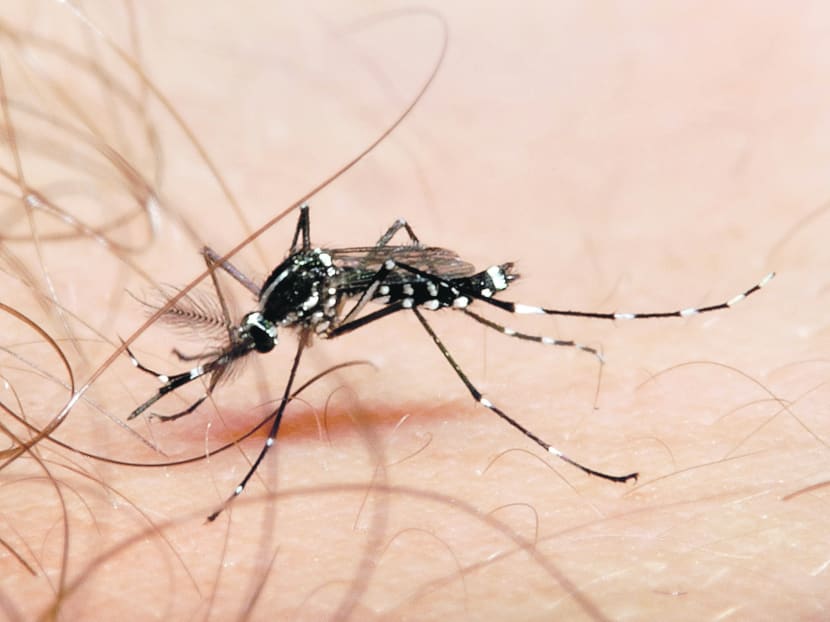More dengue-carrying mosquitoes than usual in October
SINGAPORE — While the end of the year typically signals a relief from the Aedes mosquitoes that carry dengue, the authorities have cautioned that the Aedes mosquito population in October was double what was seen in the same month last year.
SINGAPORE — While the end of the year typically signals a relief from the Aedes mosquitoes that carry dengue, the authorities have cautioned that the Aedes mosquito population in October was double what was seen in the same month last year.
“We are seeing an increase in the Aedes mosquito population, and are also experiencing a slightly warmer-than-usual year-end weather due to the El Nino phenomenon,” the National Environment Agency (NEA) said in a statement today (Dec 2).
Warmer weather supports faster breeding and maturation cycles of the Aedes mosquitoes and shortens the incubation period of the dengue virus. The agency urged the public to stay vigilant to prevent dengue cases from rising.
While the weekly number of dengue cases was on a downward trend this time last year, there were 284 cases last week, up from 254 the previous week and the second consecutive increase.
The NEA also noted there has been a 48.6 per cent dip in dengue cases reported in the first ten months of this year from the same period last year — 8,520 cases this year compared with 16,569 last year. However, the proportion of dengue cases caused by the DENV-2 serotype has increased.
The DENV-2 serotype now accounts for half of all dengue cases in Singapore. “As a large proportion of our population is still susceptible to dengue infection due to the lack of immunity, an increase in the Aedes mosquito population and slightly warmer-than-usual weather could lead to a surge in dengue cases unless measures are taken to suppress the Aedes mosquito population,” the NEA said.










